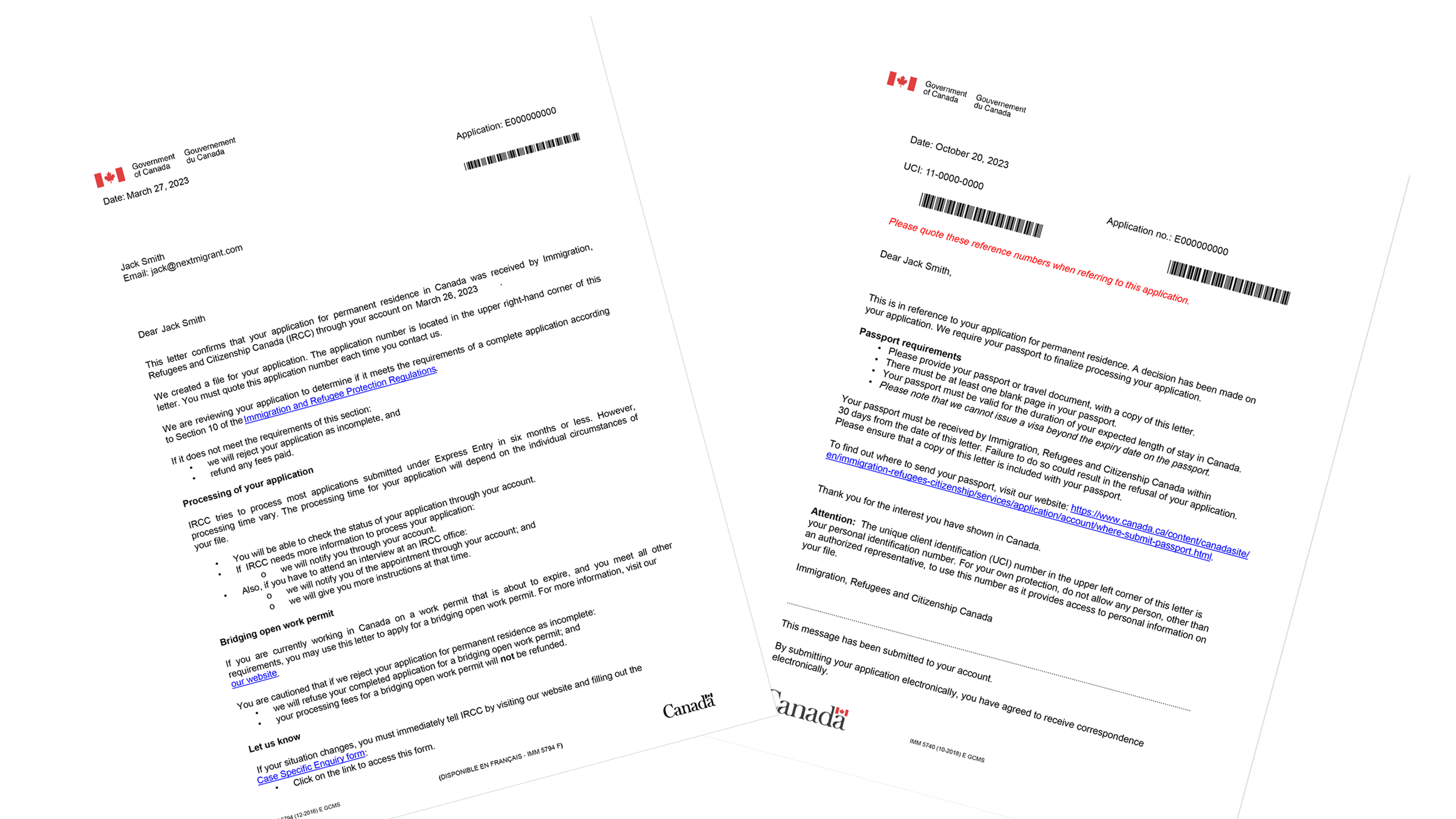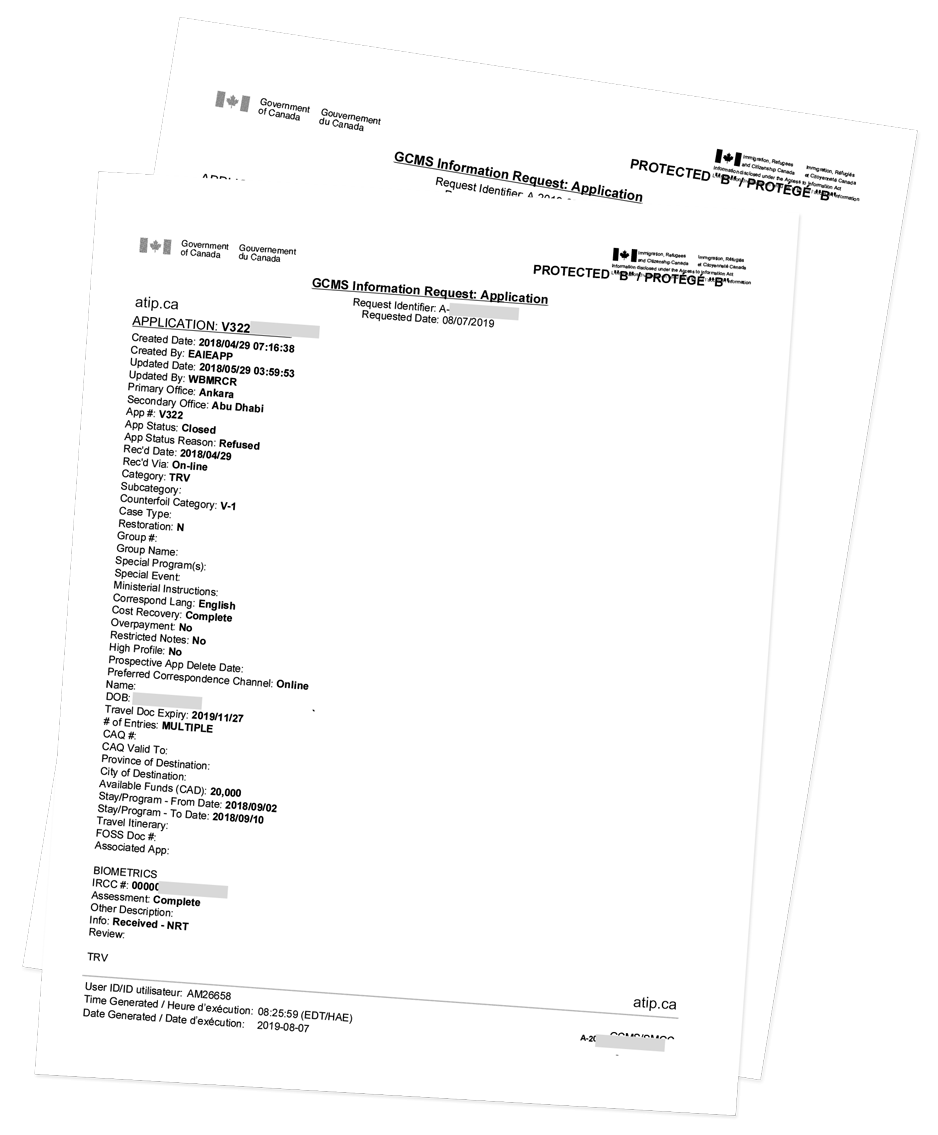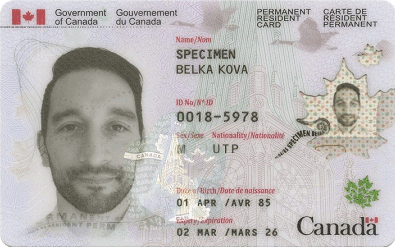The journey of your PR application: From AoR to PPR


Your Canada Permanent Resident (PR) application goes through a number of stages before you are issued a PPR or CoPR. This guide is a thorough outline of the journey of your PR application, from Acknowledgement of Receipt (AoR) to the long-awaited golden email confirming your Permanent Resident (PR) status.
The Acknowledgement of Receipt (AoR) serves as a crucial confirmation for applicants, indicating the successful submission of their immigration application. The AoR is automatically generated, typically sent out promptly to most applicants. In some cases, however, its arrival might be delayed, taking up to 24 hours.
Normally, you'll get an Acknowledgement of Receipt (AoR) right after submitting your application.
Biometric instruction letters are sent out automatically within 1 week of your AoR. Your fingerprints and photo will be collected at a designated biometrics collection service point. Biometrics information is generally instantly updated on the portal after you provide your biometrics.
Permanent residence applicants are required to provide their biometrics every time they make a new PR application.
The Completeness Check is the initial stage of the application processing. At this stage, the processing office carefully evaluates whether the application includes all the required documents, adhering to the document checklist requirements in place at the time of submission. Commonly referred to as R10, denoting Section 10 of the Immigration and Refugee Protection Regulations, this stage plays a pivotal role in the evaluation process.
Once this stage is complete, your temporary UCI number is replaced with a permanent UCI. Learn more.
In cases where an application is deemed incomplete, meaning it fails to meet the requirements pursuant to section R10, the Central Intake Office. (CIO) takes appropriate action. The CIO returns the incomplete application package to the applicant, along with the associated fees, while also recording the action in the Global Case Management System (GCMS).

The R10 Completeness Check serves as the foundational step in the application process, ensuring that the submitted application adheres to the specified requirements and includes all the necessary documentation. Please note that R10 stage is strictly limited to document completeness and eligibility is not evaluated at this stage.
After you pass R10, you also become eligible to apply for Briding Open Work Permit (BWOP). You can learn more here.
Immigration Medical Exams (IME) are conducted by panel physicians and are a mandatory requirement for all PR applicants. You will be notified by IRCC to complete the medical exam once your application enters the Eligibility stage (A11.2).
Immigration medical exam requests are sent within a few days after the R10 completeness check has been passed.
The Review of Eligibility, also referred to as A11.2, encompasses a critical stage in the Express Entry application processing. As per Section 11.2 of the Immigration and Refugee Protection Act, this phase involves an in-depth assessment of the applicant’s eligibility to ensure compliance with the immigration program’s requirements.
The Review of Eligibility is a meticulous and time-intensive process, involving thorough scrutiny of all submitted documentation for validity and relevance.
To expedite the eligibility review process, it is divided into two stages. Firstly, a case analyst, program assistant, or case processing agent conducts a preliminary review of the application and makes a recommendation. Subsequently, an immigration officer, serving as the decision-making authority, performs a final evaluation before arriving at a conclusive determination.
You may receive Additional Document Requests (ADR) at any point from this stage onwards, until your application is finalized.
Should any concerns arise during the initial stage or if specific documents warrant a careful review, they are flagged with the message “Review Required.”
If the eligibility criteria are met, but certain documents necessitate further officer review, the GCMS notes may contain messages such as “applicant has met the eligibility” or “ready to finalize.” “Ready to finalize” signifies the assistant or analyst’s recommendation for the officer’s final evaluation. Conversely, if concerns persist, messages may state reasons for ineligibility, such as non-matching job duties, unverifiable employment, or unverifiable work experience.
The ultimate decision rests with the immigration officer, who may choose to accept the analyst/assistant’s analysis or override it. Therefore, the eligibility is confirmed only when the officer conclusively marks it as “passed.” The GCMS notes for eligibility review may include up to 3-4 notes due to the two-stage evaluation process, reflecting the inputs of both the analyst and the officer.
Learn more about Review Required and Passed Candidate in GCMS notes.

The background check involves criminality, security, and information-sharing. IRCC collaborates with Canada Border Services Agency (CBSA) and Canadian Security Intelligence Service (CSIS) to ensure applicants do not pose a threat to national security.
Some applicants may be requested to attend an interview, either to verify information or for quality assurance purposes. Spousal sponsorship applications are more likely to require interviews.
Security check is a part of the background check process. One of the key parts of this step is info-sharing where IRCC shares applicant's info with other countries to verify the information provided. This step is usually completed the same day it is initiated.
This is the final step in the PR application process. Once you receive the CoPR, you can land in Canada and become a permanent resident. You are also issued a permanent resident visa if you are from a visa-required country.
CoPRs are non-extensible which means their validity cannot be extended after expiry.
Inland applicants who are already present in Canada receive eCoPR rather than a physical CoPR. eCoPR is a digital document that is sent to the applicant's PR portal account. eCoPR is issued right after your presence in Canada is confirmed and accepted by IRCC.
Your first PR card is issued to you once you complete the landing process. Application for your first PR card is automatically sent once your photo and address are accepted in the PR portal.
If you are an outland applicant, request for your first PR card will be sent when you complete your landing process at the border. You need your PR card to be able to return to Canada. Learn more about post landing formalities.

If your meet the IRCC CRS cut-off, you’ll receive an ITA to apply for Canadian Permanent Residence. Those who receive an ITA must submit an online application for permanent residence within 60 days. After the application is assessed and all requirements are met, the candidates are approved for a permanent resident visa and become permanent residents upon entry to Canada.
It's essential to recognize that processing times and AoR to PPR stages can differ significantly across various permanent immigration pathways, from Acknowledgment of Receipt (AoR) to Passport Request (PPR). Notably, there are three primary Canadian Permanent Residency (PR) pathways:
UCI (Unique Client Identifier) numbers play a crucial role in the Express Entry system, providing each applicant with a distinctive identification throughout the immigration process. However, it’s essential to differentiate between the temporary UCI number and the regular UCI number.
The UCI number that commences with "CAN" is a temporary identifier generated by the Express Entry system. This temporary UCI number serves its purpose until the application successfully passes the R10 Completeness Check stage. After this stage, the temporary UCI number will be replaced with a regular UCI number, ensuring a more permanent identification for the applicant.
If the applicant had already applied to come to Canada before as a temporary or permanent resident, their UCI number is updated with the one they were issued with their first application.
Applicants may provide a Letter of Explanation (LOE) to clarify the reasons for any missing documents. If the LOE satisfactorily explains the situation, the visa officer may grant an extension of the time limit for document submission, allowing the application to progress while awaiting the submission of the required documents.
For most application classes (FSW / PNP / CEC), the Completeness Check takes place at the Central Intake Office (CIO). According to IRCC, the majority of applications are processed within six months or less, with the processing time commencing when the application successfully completes the Completeness Check.
If an application surpasses the six-month processing period, applicants have the option to use the Case Specific Enquiry (CSE) or Webform to inquire about the status of their application, seeking updates and clarifications.
You may see Review Required status on your GCMS notes. In most cases, it is due to one or more of the following:
Occasionally, applicants might encounter "passed candidate" in their GCMS notes, indicating that their application’s eligibility is provisionally assessed based on the applicant’s profile and claims. However, the final decision remains pending until the processing of the Eligibility Review begins, and the status changes to "In Progress."
Typically, before concluding the Review of Eligibility stage, medical and criminality assessments are also completed. At this juncture, some applicants might receive a request to pay the Right of Permanent Residence Fee (RPRF), indicating that eligibility is recommended as passed or has been passed. The review of eligibility continues as "In Progress" on the MyCIC account. until the applicant receives the coveted Confirmation of Permanent Residence (COPR).
ADR, which stands for Additional Document Request. IRCC can send you request to submit additional documents or clarifications during your PR process. Request notifications are sent to your PR portal/GC key.
It is essential to respond promptly to these requests to avoid delays in processing.
Delays in the PR application process can occur due to various reasons.
Unfortunately, there is no guaranteed method to determine the exact status of the backlog. However, most applications are processed within the standard processing time.
A Ghost Update (GU) refers to background updates made to the application, which may include transferring files between offices or passing eligibility review. Not all applicants receive GU, and it is not an official IRCC term.
If the application takes longer than expected, particularly during security screening, an applicant may consider applying for a writ of mandamus to expedite the decision.
When a person is seeking a writ of mandamus in Canada related to their immigration matter, GCMS notes can play a crucial role in their case. These notes provide a comprehensive record of the immigration officer’s actions, reasons for decisions, and any delays or issues encountered during the application process.
The petitioner’s legal counsel or the applicant themselves can request access to the GCMS notes to better understand the details of their application, identify any potential errors or delays, and gather evidence to support their case for seeking a writ of mandamus. If there is evidence in the GCMS notes that the immigration officer has not fulfilled their legal obligations or has unreasonably delayed the application process, it can strengthen the petitioner’s argument for obtaining the court order mandating the official to take the necessary actions to process the application properly and in a timely manner.
If your PR file is stuck in a visa office and you haven’t received an Additional Document Request (ADR), it is advisable to apply for GCMS notes. These notes provide you with comprehensive information about your application, including all actions taken by the immigration officer so far, relevant only to your case. By obtaining these notes, you can find out what is happening with your application and make informed decisions accordingly.
In some cases, the Permanent Residency (PR) application might have been approved, but IRCC failed to notify the applicant. This situation highlights the importance of staying proactive and obtaining GCMS notes to stay updated about your application status.
On the other hand, if your application is refused, obtaining GCMS notes becomes crucial. These notes can help you identify any mistakes made in your earlier application, enabling you to rectify them before reapplying.
"PPR" stands for "Passport Request." When your application has been thoroughly reviewed and approved, the IRCC will send you a PPR letter. This letter contains instructions on how to submit your passport for visa issuance. Receiving the PPR is a significant step towards obtaining your permanent visa as it almost certainly means that you are going to get your PR.
PPRs are only sent to outland applicants. If you are already present inside Canada, you will be sent credentials to the PR portal where you would confirm your presence in Canada, after which your eCoPR will be issued.
After landing in Canada (as a PR), there will be certain post-landing formalities to complete, such as obtaining your PR card or registering for essential services, and applying for a Social Security Number (SSN).
Application for your first PR card will be automatically sent when you confirm your presence in Canada or after you complete your landing process if you are an outland applicant.
You also become eligible to some newcomer services offered to new PRs by the federal government.
It’s essential to understand the responsibilities that come with being a Permanent Resident. This includes complying with the residency obligations, paying taxes, and adhering to the laws of the country.
It’s essential to understand the responsibilities that come with being a To maintain your permanent resident status, you must have physically been in Canada for at least 730 days within the past five years. Note that these days don't need to be consecutive, and certain periods spent outside Canada may be counted towards the total.
Embarking on the journey of your PR application is a significant milestone in your life. From the initial submission to the exciting moment of receiving your Passport Request (PPR), each step is crucial.
To get more information about your application's status and progress, including details about the Ready for Visa (RFV) letter in the Express Entry application process, you can apply for GCMS notes or check out historical IRCC visa processing time trends.